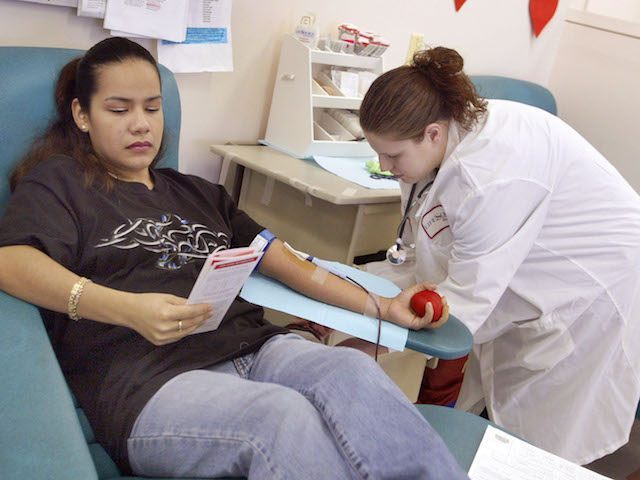As Latin America’s Zika outbreak continues to spread, the United States is moving to reject blood donations from individuals traveling to countries affected by the Zika virus, while the Canadian government considers similar action.
Spokeswoman Tara Goodin told the media the Food and Drug Administration and other agencies are working “to rapidly implement appropriate donor deferral measures for travelers who have visited affected regions in order to protect the blood supply in the United States.”
She did not specify when the FDA would take action.
The Pan-American regional wing of the World Health Organization (WHO) warned the disease could spread to nations with the mosquito carriers. They exempt Chile and Canada, since those countries are not home to the Aedes aegypti mosquito, the carrier of the virus.
Despite the minimized threat, Canadian officials are not “ruling out changes to it blood-donation policy.”
“We are carefully monitoring the zika virus issue and are considering revisions to our travel deferral policies in order to protect the Canadian blood supply from the threat of this virus,” explained Dr. Dana Devine, Chief Medical and Scientific Officer for Canadian Blood Services.
The Public Health Agency of Canada urged pregnant women to consult with their doctors before traveling to affected regions, following America’s example. Brazil, El Salvador, and Colombia have advised women from getting pregnant.
“It’s a very personal decision, but at this moment of uncertainty, if families can put off their pregnancy plans, that’s what we’re recommending,” stated Angela Rocha, the pediatric infectologist at Oswaldo Cruz Hospital in Brazil.
Patients often experience mild symptoms with Zika, but pregnant women face a larger danger. Experts are working to understand what has now become a clear link between Zika and microcephaly, which causes a baby to be born with a skull too small for their brains. This leads to serious mental disabilities.
Officials preparing for the 2016 Summer Olympics in Rio de Janiero are now taking into account Zika prevention measures for both athletes and tourists. Brazilian authorities ordered health workers to sterilize the Sambadrome, which will serve as the center for the Olympics.
More than 3,000 health workers in yellow suits, goggles, and gloves sprayed down the massive structure to fight against the disease.
“We are losing the battle in a big way,” admitted health minister Marcelo Castro.
The Australian Olympic Committee pushed their female athletes to educate themselves about Zika and “consider the risks of competing in the Rio Olympics due to the outbreak of Zika.”
“Any team members who are pregnant at the time of the Games need to consider the risks very carefully before deciding whether to proceed with travel to Brazil,” they said.
Athletes will receive mosquito repellent from officials, who also recommend everyone wear long sleeves when possible.
“The health and wellbeing of all our team members is paramount, especially those females in the team of child bearing age,” declared Australian Olympic Team Chef de Mission Kitty Chillier. “We have a responsibility to ensure that we educate and inform all prospective team members of the potential risks and to put in place whatever mitigating measures we can.”

COMMENTS
Please let us know if you're having issues with commenting.